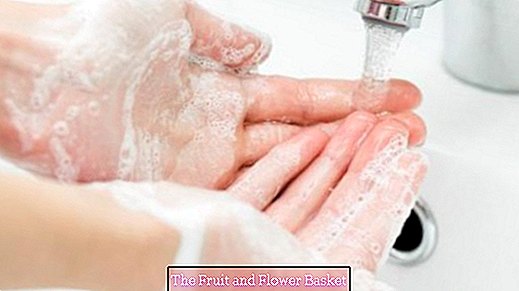Disinfection in the household - when hygiene becomes obsession
Attack of the killer microbes!
The look in many German utility cabinets makes you think involuntarily of the arms race of the superpowers. Only this is not about East versus West, but about human versus microbe. Fight the germ, with the supposed enemy lurking in the invisible. First and foremost, it must be noted that the number of microbes colonizing the human body exceeds the number of body cells. And that's just as well! The vast majority of these smallest roommates fulfill vital tasks for humans. Only very few are pathogens or other troublemakers. So what fuels our irrational fear of germs?
The offer determines the fear?
The cleaning and hygiene market is saturated with antibacterial, virucidal (anti-virus) and disinfectant products. Disinfectant wipes for the toilet seat, anti-germ garbage bags and liquid agents such as Sagrotan and Co. Here, a need is suggested, which in reality does not exist. In private household disinfectants are usually superfluous. Exceptions are, for example, households in which a person suffers from a highly infectious disease, such as the Noro virus. Here, the targeted use of disinfectants can interrupt the infection chain. This is especially true for households in which people live with a weakened by illness, immunodeficiency or chemo defense.
Where is disinfection useful?
Basically you can say: In all medical facilities. In hospitals, medical practices and nursing homes, the increased incidence of disease-causing bacteria can be a serious problem. Also in food production and in commercial kitchens disinfection is appropriate. However, the desired sterility in hospitals also has its downsides. Studies by Irish researchers suggest a connection between the use of disinfectants and the antibiotic resistance of various germs. In addition to the misuse of antibiotics could be another source of dangerous hospital germs.
Hygiene yes, disinfection no!
If some basic hygiene rules are observed in the home and everyday life, any kind of disinfection is unnecessary. Some of the most important tips are briefly summarized here for you:
- Wash your hands: A study shows that people on average face 400 times a day. Since most of the germs are "passed on" through the hands, there is a particularly high risk of infection here. Armin Schuster, a biologist at the Freiburg Institute for Environmental Medicine and Hospital Hygiene, says: "You can catch a cold by rubbing your eyes when you have cold viruses on your hands." Only regular and thorough hand washing helps, especially before handling food, after using the toilet and after having contact with patients or pets. Water and soap are enough!
- Foods: Every year, more than 200,000 gastrointestinal diseases are registered in Germany, due to poor hygiene in the food industry. And these are only the recorded cases, because the unreported number is much higher. Here, especially germs such as Salmonella, Listeria and Campylobacter are targeted. These bacteria, which are found in fish, meat and sausage but also in raw milk products and eggs, can lead to serious diseases. These foods should therefore be stored immediately after purchase at a maximum of 6 ° C in the refrigerator. In order nevertheless to make existing germs harmless, the meals must be heated during preparation at least 2 (better 10) minutes to over 70 ° C (core temperature!).
- Dish brush and rag: Microbes love to settle in the damp, warm milieu of the rinse aid. Whether these germs are harmful to health, however, depends on the previous use of rag and brush. Anything that has come in contact with leftovers of meat, fish, sausage, milk, raw egg or thawing water is always in the washing machine or dishwasher before being used again.
- Bathroom and toilet: Normal cleaning is enough! In the average German household in the fridge more germs than on the toilet seat. In the bathroom, especially the areas are germ-contaminated, which come into contact with many hands. So doorknobs, faucets, light switches and toilet flushes. But even here the use of disinfectants would be comparable to the "gun-on-sparrow principle". Regular wiping of the affected areas and thorough hand washing are sufficient.
To sum up, disarmament is in demand in the disinfectant sector. Do not turn the commercial and retail battles against the "invisible enemy" microbe into your private campaign. Most microbes are your friends and helpers, so do not take them under "friendly fire"!





